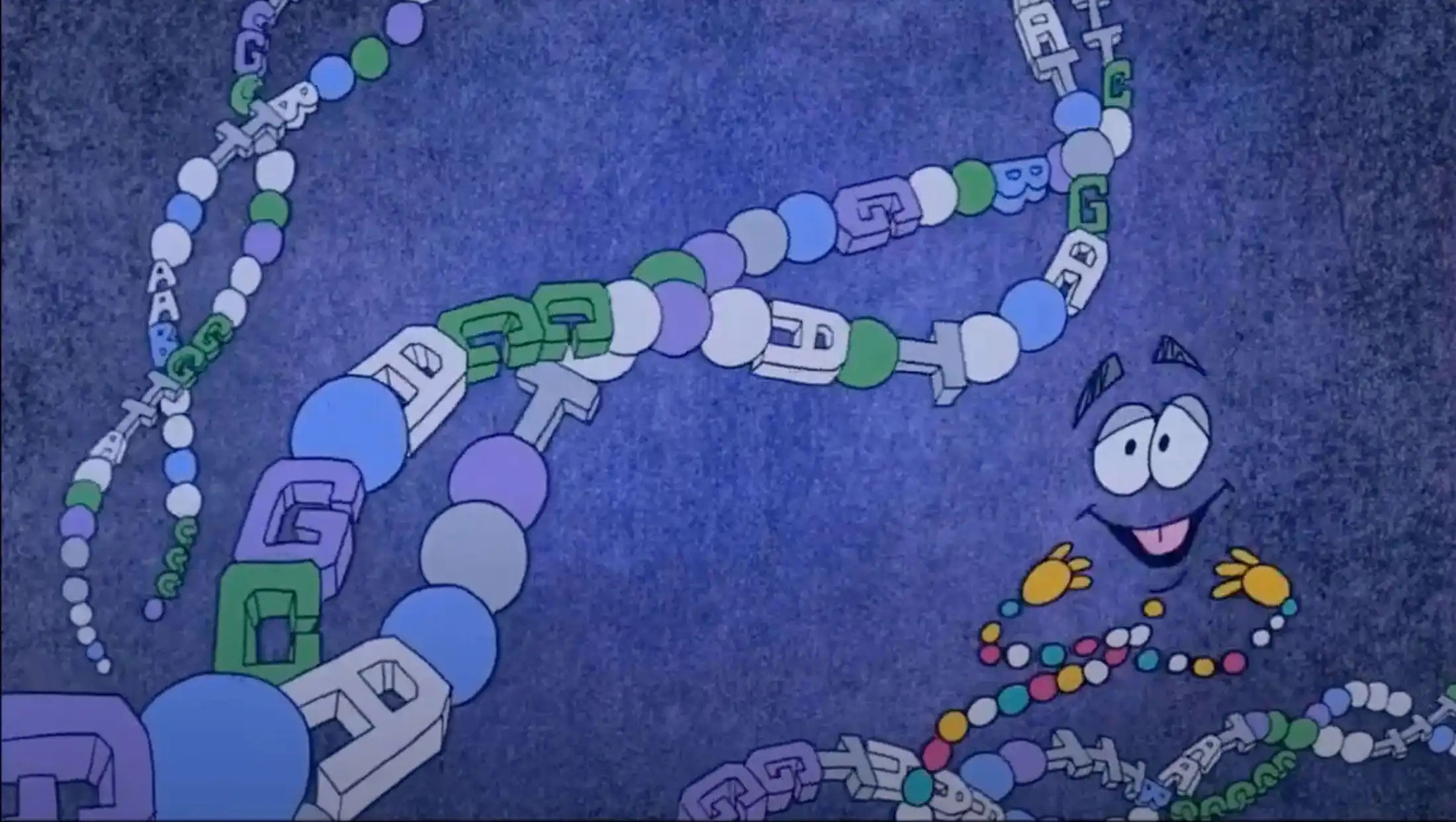Over the past few decades, many people have turned to poker as a career.
The almost unlimited money-making opportunities combined with the free lifestyle have been one of the main reasons for this phenomenon.
However, while there are tens of thousands of people playing poker for a living, it is clear that a select handful have been more successful than others.
Players who have managed to turn the game into a profitable venture spend a lot of time learning.
Most go through many ups and downs before finally finding their comfort zone, but some seem to skip the whole process almost entirely and go from learning the rules straight to winning.

This, of course, begs the question why.
What makes these players master the game with such ease? Are they somehow naturally predisposed to excel at poker?
Is the game somehow part of their essence, and more importantly, is poker in your DNA?
What makes someone good at poker?
If you’re a poker fan, you’ve surely wondered at least once or twice what it would be like to play poker professionally. Even for the calmest and most entrenched spirits, the idea has a certain appeal.
But, there’s always a big question that comes from these thoughts. Do I have what it takes?
1. A mathematically gifted brain
First and foremost, poker is a game of numbers.
You’ll hear a lot of different opinions about it, but the bottom line is that if you don’t understand the math behind the game, you won’t do well in the long run.
Have you always had a knack for numbers, graphs and percentages? If so, there’s a good chance you’ll do well in poker.
Many of the players you see on TV who have built their bankrolls from scratch like numbers more than most people can imagine.
It’s one thing to understand how percentages work. Enjoying them is quite another.
If you read the last few paragraphs shaking your head, don’t worry: all is not lost. Being crazy about numbers can be a great asset for a poker player, but it’s not essential.
If you hate math and don’t want to be anywhere near it, poker probably isn’t in your DNA.
One of the things that makes poker a game of skill and strategy is its mathematical aspect. Without it, it would just be another card game where the luckiest person wins.good instincts you can trust
Another personality trait that may indicate that poker may be in your DNA is good instincts.
2. Everyone has instincts, but not everyone is so sure of them.
If you are a person who has very good instincts and intuition, you probably know this at this point in your life. You’ve certainly been in situations where you’ve relied on them and they’ve helped you get out of difficult situations.
At the poker table, good instincts can be truly invaluable.
As much as the game relies on odds and statistics, you rarely have a full range of information to work with. Some of it is guesswork.
Of course, math wizards rely on complex GTO calculations to figure it out, but good instincts can also be very helpful.
So, if you’re good at “reading” people, i.e. figuring out when someone isn’t being honest with you, you’ll find that this skill will be very useful, especially in live games, where people often can’t hide their emotions or do so very poorly.
3. Risk tolerance
At the end of the day, poker has an element of gambling in the short term.
Even the best of the best have often found themselves in situations where they came close to letting their entire bankroll go (or actually did), either because of really bad luck, poor bankroll management, or, usually, a combination of both.
But when you listen to their statements, you can almost hear the excitement in their voice. You don’t get the impression that they are talking about something unpleasant.
This is because people who have poker in their DNA have a much higher tolerance for risk and don’t see this aspect of the game as tragic.
If you are truly naturally predisposed to the game, you will somehow enjoy every aspect of the game – even the not-so-pleasant ones.
You’ve probably heard poker players referred to as “degenerates” (short for degenerate gambler, meaning always broke from gambling).
Now, you might think, in what world could this word have any positive connotation?
The answer is – in the world of poker.
You don’t want to be “degen” or reckless, but in a way you do.
Poker is not just about making money. It’s about having fun and experiencing all that it has to offer. The good, the bad and everything in between.
You may be reading this and thinking – this isn’t right, there are so many great players who don’t behave this way.

You are absolutely right!
It is not a mandatory personality trait to excel in the game. There are many great players who treat it purely as a business and have achieved consistent results for decades.
Such players have usually built up their bankrolls over a long period of time and are very unlikely to go broke. Their calm, calculated and systematic approach to the game has served them well over the years.
Those who have built up their seven-figure bankrolls in a matter of months are also more likely to take big risks in the future and fall into bankruptcy. Just think of someone like “Isildur1.”
He was able to make seven figures in a matter of hours without blinking an eye.
And once he went broke, he would go back to grinding lower rates and rebuild his roll, only to do it all over again.
This isn’t what you’d call “normal” behavior, but until recently poker wasn’t considered a normal profession either.
4. Not worrying too much about what people think of you
Given the fact that poker is still not so widely accepted, in order to fall in love with the game, you will probably have to think outside the box.
In such an established society, how can you come up with the idea of playing cards and shuffling chips for a living?
Whatever happened to good, old-fashioned hard work and ambition?
Most people outside the poker world don’t understand that playing poker seriously is hard work. It’s not just about learning to play well.
It’s hard to put in your best effort every time you sit down at a table and repeat it session after session.
To someone looking from the outside, it seems easy, but it’s not easy, even if poker is in your DNA.
All things considered, you have to be a person who is comfortable stepping outside traditional social boundaries.
If you’re not lucky, your relatives will be at least mildly shocked at the idea that you consider poker a viable career choice.
It takes a special kind of person to resist any negativity and stand your ground.
But if poker is something you really love and enjoy, and if you feel naturally good at it, it won’t matter as much.
It’s strange, but it’s one of those things you’re likely to know after playing your first cash game or tournament.
Even with very limited knowledge of exact strategies, the game will make sense to you.
You will feel at home at the poker table, even though you are surrounded by players far more experienced than you who have a feeding frenzy on their stack.
You will know that there is a way to get better and return the favor, and you will be eager to learn the game.
If you find poker boring or unexciting, you can still become a very good player, but you will never get as much enjoyment out of it as someone who somehow appreciates every moment, including the obligatory bad beats and coolers.
Hard work vs. natural talent – what matters most?

I’ve said many times in this article that you don’t have to be naturally gifted at poker to succeed at the game.
As with most things in life, natural inclinations are a good initial asset, but they don’t guarantee you anything.
Having poker DNA by itself will not make you one of the best players, especially these days.
In fact, it can even be a bad thing at times.
Naturally talented players often experience some degree of success early in their careers. Combined with a good track record, their talent is enough to win at lower stakes, where competition is not as fierce.
However, as the stakes increase, they encounter much tougher opponents and find that talent alone is no longer enough.
It is at this stage that poker players become winners.
Players who realize that they need to use their talent and dedicate themselves to studying the game in order to grow will thrive and succeed more often.
Those not prepared to put the hours in either abandon the game or become the “reg fish” type that games are set up around.
Hard work beats talent 99 percent of the time in the long run, and we all know that poker is about the long run.
So, do you have poker in your DNA?

The fact that you are reading this article suggests that you have some degree of love for the game.
Otherwise, I don’t know how you could have stumbled upon it, let alone made it all the way to these final passages.
If you recognized yourself in some of the points I’ve made here, chances are you have at least a hint of poker in your soul.
Whether these are just traces or a serious part of your entire genome cannot be determined without further research.
On the more serious side, you shouldn’t focus too much on the idea.
You don’t have to be a genius to be a great poker player. If you enjoy the game and don’t mind learning about it, you’re already halfway there.
The biggest trap you can fall into is thinking you are too good and too talented to take advice from anyone.
If you’re not beating games consistently, it doesn’t matter if you have poker in your DNA or not. It’s a clear sign that you need to improve – and you won’t achieve that without putting in serious work.
Take every opportunity to learn and improve, and pretty soon you’ll be watching all the “talented” kids in the rearview mirror as you climb the stakes!


